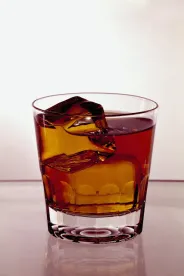In an important ruling dismissing a proposed class action, the US District Court for the Southern District of Florida ruled that the US Food and Drug Administration’s (FDA’s) generally recognized as safe (GRAS) regulation preempts a Florida statute that criminalized adding grains of paradise to liquor. More specifically, the Court in Marrache v. Bacardi USA, Inc., 2020 US Dist. LEXIS 13668 (January 28, 2020), ruled that the Florida statute was preempted because it conflicts with the Federal Food, Drug and Cosmetic Act (FFDCA) and the FDA’s regulations (21 C.F.R. § 182.10) which establish that grains of paradise are GRAS. 2020 US LEXIS 13668, at *4.
The case started when Florida resident Uri Marrache purchased a bottle of Bombay Sapphire gin at a Winn-Dixie store in Florida. After consuming the gin, Marrache filed suit under Florida’s Deceptive and Unfair Trade Practices Act, claiming that Bacardi (the producer of Bombay Sapphire) and Winn-Dixie had engaged in “unfair,” “unconscionable” and “deceptive” practices by selling gin “adulterat[ed]” with grains of paradise. Critically, Marrache did not allege that the grains of paradise in the gin had actually caused him any physical injury or otherwise interfered with his enjoyment of the beverage. Rather, Marrache claimed that he was damaged in that he did not receive what he bargained for—i.e., a product that did not violate the Florida law.
As a second ground for dismissal, the court held that Marrache had neither alleged nor suffered any cognizable injury. 2020 US Dist. LEXIS 13668, at *6-9. The court explained that, to state a claim under Florida’s consumer protection statute, a plaintiff must allege “actual damages.” Generally, such damages are measured “by subtracting the difference in market value of the product in the condition in which it was delivered and its market value in the condition in which it should have been delivered.” Rather than pointing to any impact on the market value of Bombay Sapphire from the presence of the grains of paradise, Marrache argued that purchasers were entitled to a refund of their full purchase price because the gin’s “illegal” status rendered it “worthless.” The Court ruled, however, that because the Florida statute was preempted, the gin was “not illegal.” Other than the assertion of illegality, the complaint “d[id] not set forth allegations explaining” how the gin was worthless—i.e., that it was undrinkable or caused the plaintiff any injury (e.g., side effect, health issue, harm).
While the facts make this a unique case (existence of a State law prohibiting an ingredient), the principal that a State law—or, presumably, regulation—is preempted by federal law with which it conflicts is the most significant takeaway.





 />i
/>i


